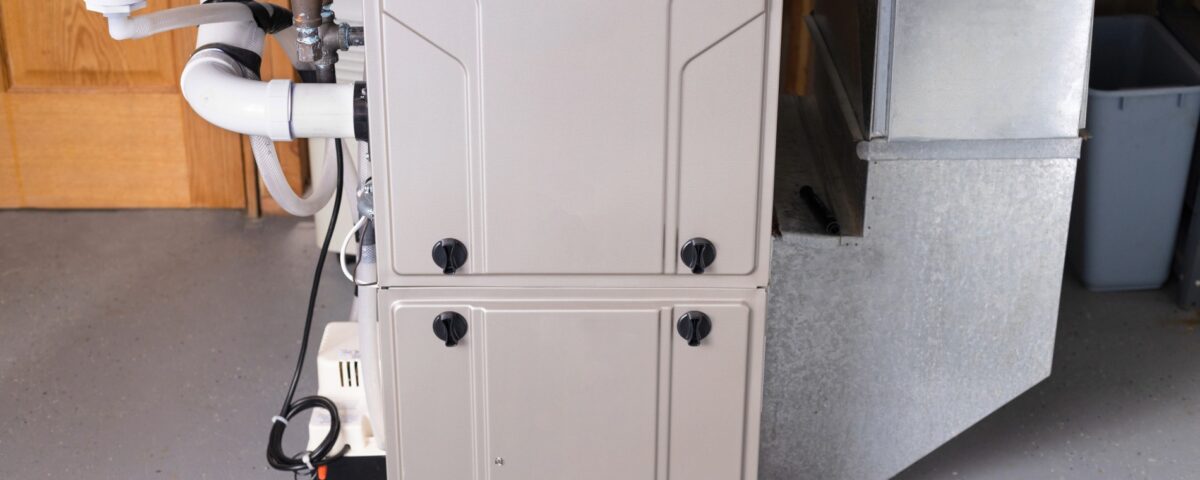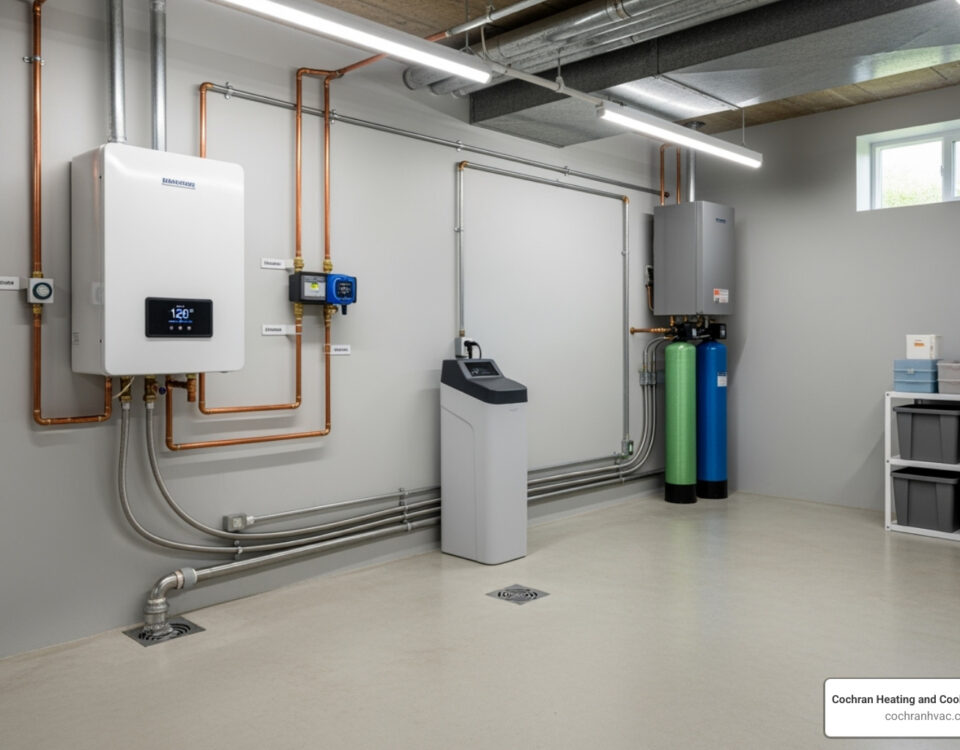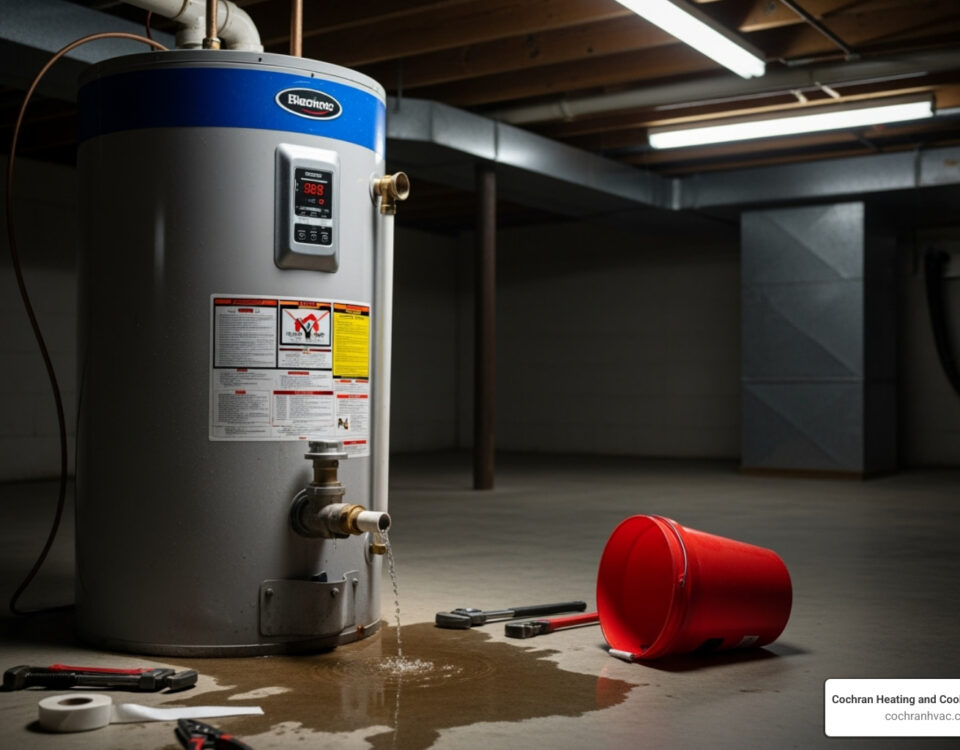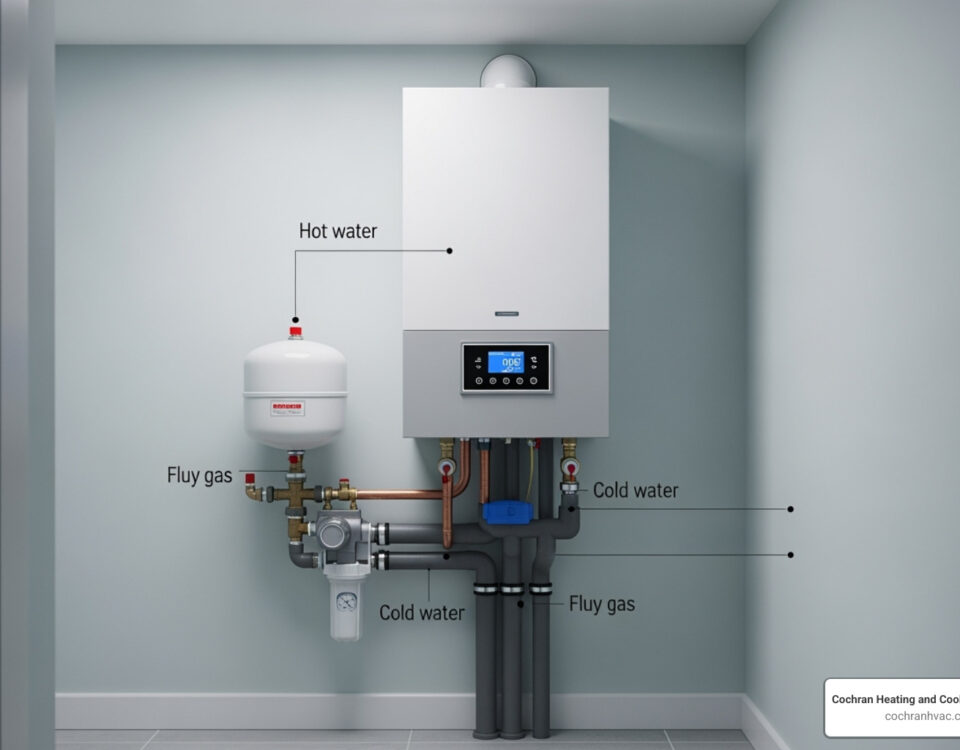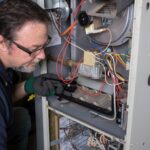
Why Your Furnace Makes Banging Noises and When to Call for Help in Greensburg
September 2, 2025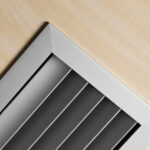
Why Your Heating Vents Blow Cold Air in North Huntingdon
September 10, 2025Heating systems in Murrysville homes are expected to provide consistent warmth during the fall and winter seasons. When they fail to do so, it can be uncomfortable, frustrating, and costly. A common issue that homeowners face is short cycling, where the heating system turns on and off more frequently than it should. This not only wears down the system faster but also prevents it from heating the home properly.
Short cycling is not something to ignore. It can start with small inconveniences, like uneven room temperatures, and escalate into larger issues such as higher utility bills and complete system failure. Addressing the problem early helps you stay comfortable and avoid unnecessary heating repair in Murrysville as the colder months begin.
Causes Of Heating System Short Cycling
There are several reasons a heating system may start short cycling. Identifying the root cause is the first step in solving the problem. In many Murrysville homes, it often traces back to something simple, but without attention, it can create more damage over time.
Some of the most common causes include:
– Thermostat problems: A malfunctioning thermostat can wrongly signal to the furnace that the home is too warm or too cold. If it sends mixed signals, the system may turn off before reaching the desired temperature.
– Clogged air filters: Dirty or blocked filters limit airflow. If warm air cannot move through your ducts, the system heats up too fast and then shuts down to cool itself, repeating the cycle.
– Oversized heating system: If your furnace is too large for your home’s square footage, it may heat rooms quickly but shut off before distributing warmth evenly. This results in more frequent system cycling.
– Blocked vents or ductwork: Similar to dirty filters, blocked return vents or disconnected ducts can restrict airflow. When that happens, internal components overheat and cause the system to shut down early.
– Flame sensor issues: A dirty or damaged flame sensor can cause the system to assume there’s a safety risk, triggering it to turn off the flame shortly after ignition.
Each of these issues can damage the performance of your heating system and reduce its efficiency. If your furnace has to work harder than it should, you may experience higher utility bills and inconsistent temperatures throughout the house. For example, one homeowner in Murrysville noticed the heat kicking on and off every few minutes and found their filter had not been changed in months. A simple swap restored steady performance, but waiting any longer could have led to bigger problems.
Identifying Signs Of Short Cycling In Your Home
It is not always easy to tell when your heating system is short cycling. The signs are not loud or obvious, like a sudden breakdown. They are usually subtler and build up over time. Still, if you know what to look for, you can act before something more serious happens.
Here are clear signs that your heating system may be short cycling:
– The system is running shorter-than-usual cycles and turning on again every few minutes
– Rooms in your house are warming up unevenly or cooling down too quickly
– You hear the furnace click on and off repeatedly throughout the day
– Energy bills are increasing, even though your usage and thermostat settings have not changed
– The furnace shuts off before it reaches the temperature you set on the thermostat
These patterns indicate something is not working as it should. Listening to your furnace and watching your thermostat can help you catch these red flags. If you have ruled out user error like setting the thermostat too high or too low, short cycling is a likely explanation.
Solutions to Address Short Cycling
Once short cycling is confirmed, the best next step is to address what is causing it. Some issues are simple fixes, but even basic problems can turn into major headaches if left unchecked. Timing matters, especially with heating systems that see heavy use in Murrysville as colder weather approaches.
Start by checking and replacing your air filter. A clogged filter can drastically limit airflow and cause the system to heat too quickly, shutting down before completing a full cycle. Homeowners are encouraged to replace filters every one to three months depending on use and household conditions.
Next, take a look at your thermostat settings and placement. If the thermostat is near heat sources like vents or windows, it may register warmer temperatures than the rest of your home and shut the system off too early. Relocating or recalibrating the thermostat often solves these types of control errors.
Here are a few more system issues that may require professional attention:
– Faulty flame sensor: If it is dirty or corroded, it can shut the system down as a safety precaution
– Oversized furnace: A unit that is too large will heat the space too quickly and shut off, cycling frequently
– Electrical control problems: Faulty relays, circuit boards, or wiring can interrupt the heating cycle
– Blocked or restricted air vents: Closed or obstructed vents prevent airflow, triggering early shutdowns
If you have worked through the common homeowner-level tasks and nothing changes, it is time to bring in trained technicians. System diagnostics, internal testing of sensors, and load assessments ensure the root of the issue is caught before other components are affected. Any delay can lead to damage in the blower motor, burners, or ignition system, resulting in a much larger repair bill down the line.
Preventative Measures to Avoid Future Short Cycling
Preventing short cycling does not just save wear and tear on your system. It keeps heating consistent during the months when your comfort depends on it. With regular upkeep and a few simple habits, Murrysville homeowners can reduce risk and keep their systems running smoothly through fall and into winter.
Make it a routine to:
– Replace or clean air filters regularly
– Keep all supply and return vents open and free from obstructions
– Check the thermostat’s battery and settings each season
– Schedule a heating system inspection before cold weather hits
– Avoid setting the thermostat too high, as it will not heat faster and can cause the system to short cycle
– Have ductwork inspected and sealed every few years to prevent leaks that strain the system
These steps are low-cost and take minimal time, yet they go a long way toward protecting your investment. Even newer systems can short cycle if maintenance is skipped or if external factors like airflow restrictions are left unchecked. Consistent care prevents the need for emergency repairs and helps your heating system last longer.
Ensuring Reliable Heating in Your Murrysville Home
Short cycling is not always an obvious problem at first, which is why small warning signs should never be ignored. If heating cycles feel shorter or your house warms unevenly, it is worth taking a deeper look. Most causes are mechanical or airflow-related, and they can often be handled quickly when caught early.
When addressed right away, short cycling will not just stop. Your system will run better, your home will feel more comfortable, and your energy use will level out. Reliable heating comes from proactive care, not just quick fixes when something breaks. With colder days ahead, making sure your system is running correctly can mean the difference between steady warmth and stressful repair calls down the line.
If your heating system is short cycling or struggling to keep your Murrysville home warm, addressing the issue promptly can help prevent costlier repairs later. Trust Cochran Heating and Cooling to provide reliable solutions, including heating repair in Murrysville, to restore consistent comfort throughout your home. For a quick estimate or to book a service visit, please contact us today.

